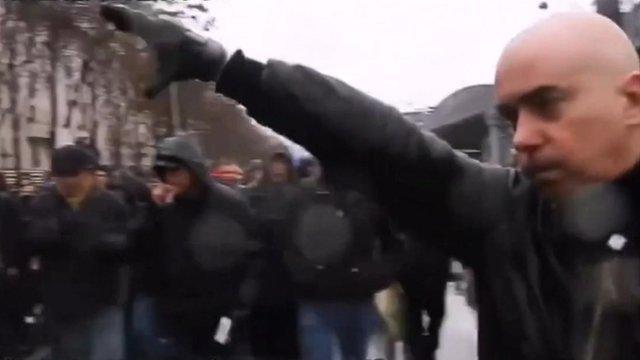Jewish fears for safety in wake of Paris attacks
- Published
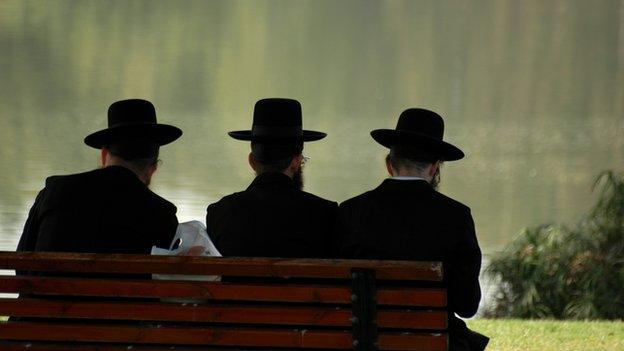
Intolerance against Jewish people seems to be on the rise
Two young college student poets, Hannah Halpern and Amina Iro, are talking about their faith.
Nothing unusual there, you might think.
But one writes about Allah and her mosque, the other about her synagogue and the Star of David.
The two met at a Washington DC youth slam poetry event and write and communicate about their faiths in ways that aim to engage and provoke their audiences.
It's a type of dialogue that will be much needed now, after the killings in Paris and the attack on a kosher supermarket there.
The young poets were taking part in a session at Limmud, which has been likened to a Jewish Edinburgh festival, Hay and Glastonbury rolled into one and is held on Warwick University campus just before New Year.
Limmud (from the Hebrew word for "learning") began life in 1980 and now has some 50 offshoots around the world.
In the UK this year, it drew over 2,500 people from 27 countries - all the more remarkable given the relatively small size of the UK's Jewish community, which numbers under 300,000 people, a community with close links to Jewish families in Paris and elsewhere in France.
The question of identity and security was tackled in many of Limmud's discussions, as Judaism and the role, lives and place of Jewish people in Europe and across the world was examined from every perspective, from the historical to the feminist, and from the religious to the secular.
Rise in attacks
Even before the Paris attacks, there were worries over a sharp rise in anti-Semitism in the UK and mainland Europe in 2014, during and after the latest conflict in Gaza.
In France, the killing of Jewish schoolchildren in Toulouse in 2012 by a Frenchman of Algerian descent, and the murders of four people inside the Jewish museum in Brussels by another Frenchman of Algerian descent in May 2014 heightened fears amongst the Jewish community in France and elsewhere.
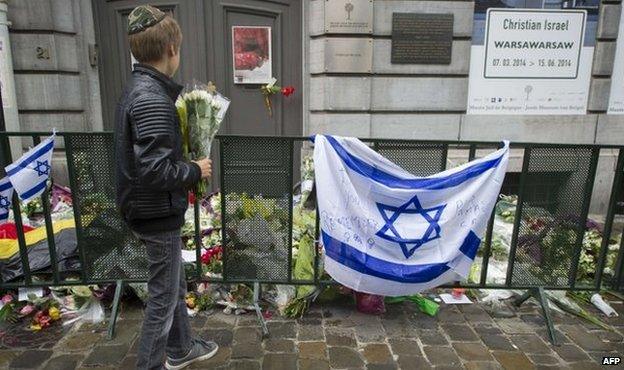
Four people were killed inside the the Jewish Museum in Brussels last year
The uneasy mood was articulated by BBC's director of television, Danny Cohen, at a conferenc, externale in Jerusalem last year.
He said he had "never felt so uncomfortable as a Jew in the UK", as figures showed that anti-Semitic incidents in Britain also rose to record annual levels in 2014.
Mr Cohen said levels of hatred were on the rise across Europe.
"You've seen the number of attacks rise, you've seen murders in France, you've seen murders in Belgium. It's been pretty grim actually."
The killings at Charlie Hebdo in Paris last week have further focused attention on radical Islamism in Europe, and the safety of Jewish communities in France, Germany and the UK.
At one Limmud seminar, Michael Whine, of the Community Security Trust (CST), which seeks to protect Jewish communities and offer advice on security, sought to place last summer's figure in a wider European perspective, citing research by the Institute for Jewish Policy Research showing that Jewish people in the UK felt safer than those in France.
However, CST figures still showed a significant rise in both verbal and physical attacks on Jewish people in the UK in 2014 compared with 2013, with 543 recorded in July and August 2014 alone - although the percentage of violent attacks - 7% - did not rise in the UK, unlike France.
Paris rally
Over the weekend, Ephraim Mirvis, Chief Rabbi of the United Hebrew Congregations of the Commonwealth, joined the march in Paris, and the memorial service at the Great Synagogue there.
He said he was pleased to have the opportunity "to express solidarity with the people of France and the French Jewish Community".
"We stand together at this time challenging time."
The Senior Rabbi to the Movement for Reform Judaism in the UK, Laura Janner-Klausner, also went to Paris.
She travelled with a Muslim colleague to join the march with well over a million others, to show solidarity with the French, of all faiths and none.
She said they wanted to demonstrate that all communities could work together to counter the hatred and extremism manifested in the attacks last week.
"Some parts of the Jewish community in Paris were still suffering from the trauma of what happened there," she said.
"Some had heard the shots being fired at Charlie Hebdo, so they were frightened.
"Some were tearful, and emotional. But they were not saying, 'Now we are going to pack our bags and leave.'
"They were saying,' This is our home, and we don't want the narrative to be that we are leaving because of this.'"
Nonetheless, she said that anti-Semitism in France was more obvious and public than in the UK.
"There, the anti-Semitism can be palpable, whereas in Britain what we generally experience is a wonderful sense of integration.
"This is where we live, this is where we want our children to go to school and grow up. If the worst happened in the UK, which it could, this is still our home."
Colonial legacy
Many believe that the legacy of France's colonial history in north Africa still drives much of the anti-Semitism evident there.
Some Muslim immigrants from Algeria, Morocco and Tunisia - even now in the second and third generation - continue to feel excluded from the mainstream in France.
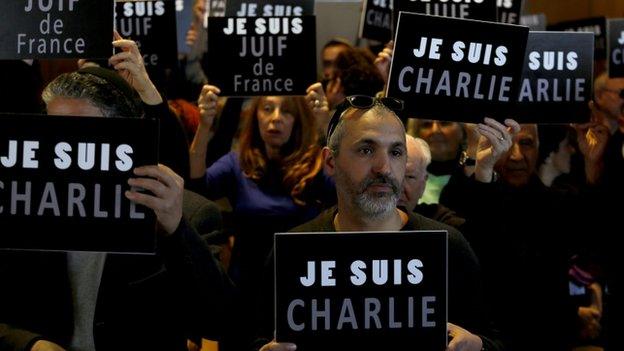
Members of the French Jewish community demonstrated in Jerusalem on Sunday
Many live very separate lives in the grimmer suburbs around Paris and other major cities, where unemployment is high and prospects are often limited.
Jewish immigrants to France from north Africa often integrated faster and have sometimes enjoyed better economic prospects, leading to tensions between the two.
At the same time, both communities often live side by side, but remain in many cases divided by the perception amongst some younger Muslims that while they struggle to be accepted in France as truly French, Jewish families have not had as much of an uphill task.
Yet some 7,000 French Jewish people chose to leave for Israel last year, a record number, thanks partly to a rise in anti-Semitic attacks, although a dearth of jobs and economic stagnation may also have played its part.
Some French Jewish people have also moved to London, to seek work or education there.
In the UK this week, the CST said there would be increased police patrols in Jewish areas, as a visible reassurance to the community.
The hope is that it is only a precaution, not a necessity, with Jewish-Muslim relations in the UK enjoying a more harmonious history than in France.
Community on edge
In the UK, Justin Cohen, news editor of the Jewish News, says that nonetheless: "British Jews are still on edge following the huge increase in anti-Semitism last summer, and the horrific events in Paris have heightened tensions.
"Still, there is a clear difference between that and the levels of hate faced by the community in France.
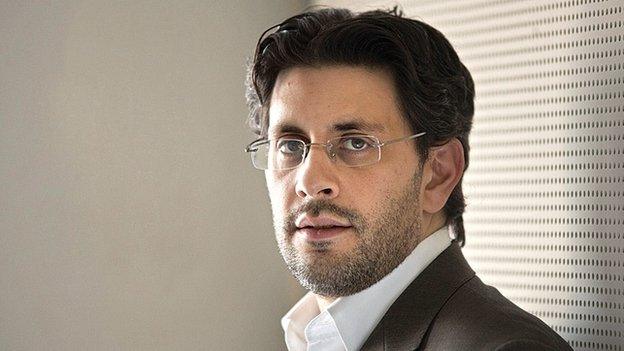
Danny Cohen spoke out against attacks
"And it is absolutely not the case that British Jews are packing their bags to leave, as is the case across the Channel.
"Nevertheless, members of the British Jewish community are all too aware that, alongside US, British and Israeli sites, Jewish ones are high up in the target list for Islamist fundamentalists.
"Jewish schools and institutions will be going about their usual business today, but with this and fresh calls for vigilance uppermost in their minds."
The worry remains that the virulent strain of Islamist extremism that exploded on to the world stage again so violently in France last week is an ideology that can be used by extremists anywhere to seek to divide communities, different faiths and societies across the world.
The challenge now for many is how to strengthen interfaith ties to resist that attempt.
- Published21 August 2014
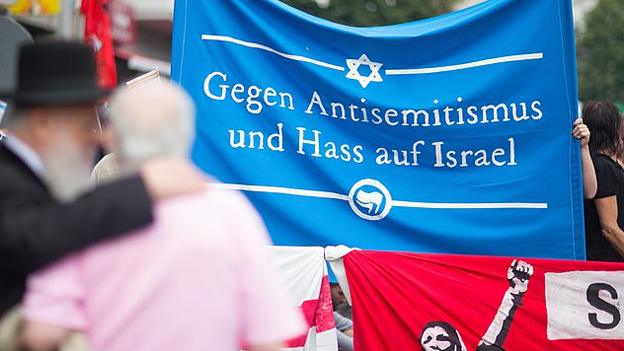
- Published28 July 2014
- Published21 July 2014
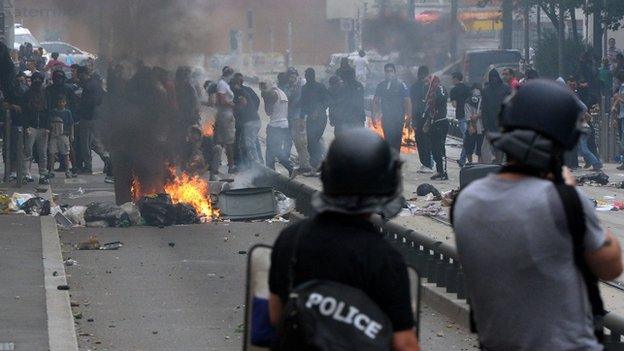
- Published14 April 2014
